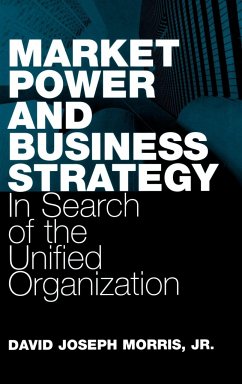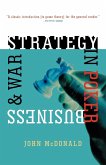Dr. Morris argues that through its Western mode of thought, a philosophy of separation, the U.S. is losing its edge in worldwide business competition. Separating is pluralistic, says Morris, while the Eastern mode of thought is unitary-it seeks to combine. Morris maintains that in business, the Eastern way of thinking is winning. He thus calls for U.S. corporations to combine their various functions and simplify them, to develop what he terms a common operating system that can successfully achieve market power, a way to block existing and potential competitors from access to targeted markets. It means adopting what for U.S. business is an entirely new way of thinking, and out of this develop a new approach to business strategy formulation. How this can be done, how the various functions of the organization can be linked into a non-linear, unitary structure, and why this must be done, is Dr. Morris's theme. A unique, innovative, ultimately pragmatic discussion for corporate executives throughout the organization, and new food for thought throughout academia. Market Power and Business Strategy consists of seven modules, not chapters. Chapters, says Morris, imply a linear approach to learning and strategy. His book calls for a circular approach. Readers can begin the book anywhere, and will find after finishing it that the effect on their understanding is cumulative. Not only will they get a new way of considering individual functions within the organization, but they will also be struck by how these functions can be combined. The key is in the operating system. It's common to all functions, but because of the way Western thought has developed, the commonality has become hidden. Morris uncovers it by examining in detail the two ways of thinking, Western and Eastern, pluralistic and unitary, and compares them in the contexts of marketing, human resource, finance, and other resources that exist within organizations. In doing so, he focuses sharply on marketing, in the belief that marketing strategy cannot be formulated in a vacuum. It must be derived from all intra-organizational disciplines, just as they must build their own strategies with markets and marketing uppermost in mind. With examples from everyday business situations and a wrap-up module that proves his thinking is by no means Utopian, Morris will challenge many strongly held beliefs, to which he would respond: that's the best way to learn.








